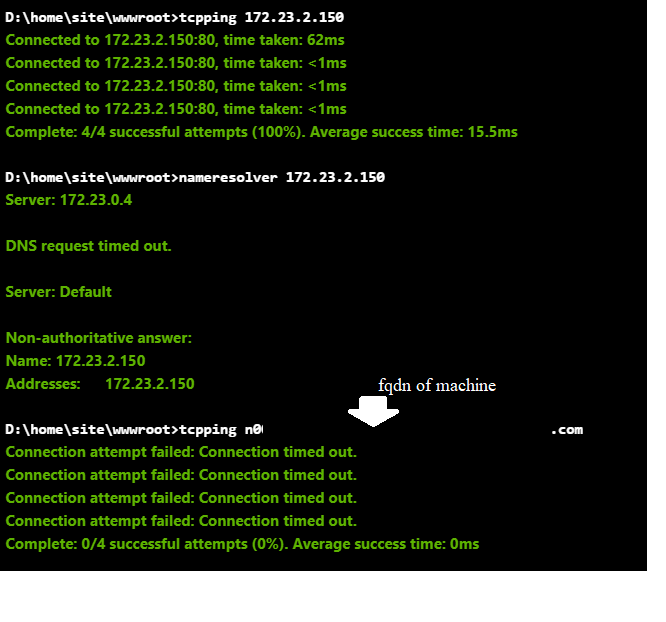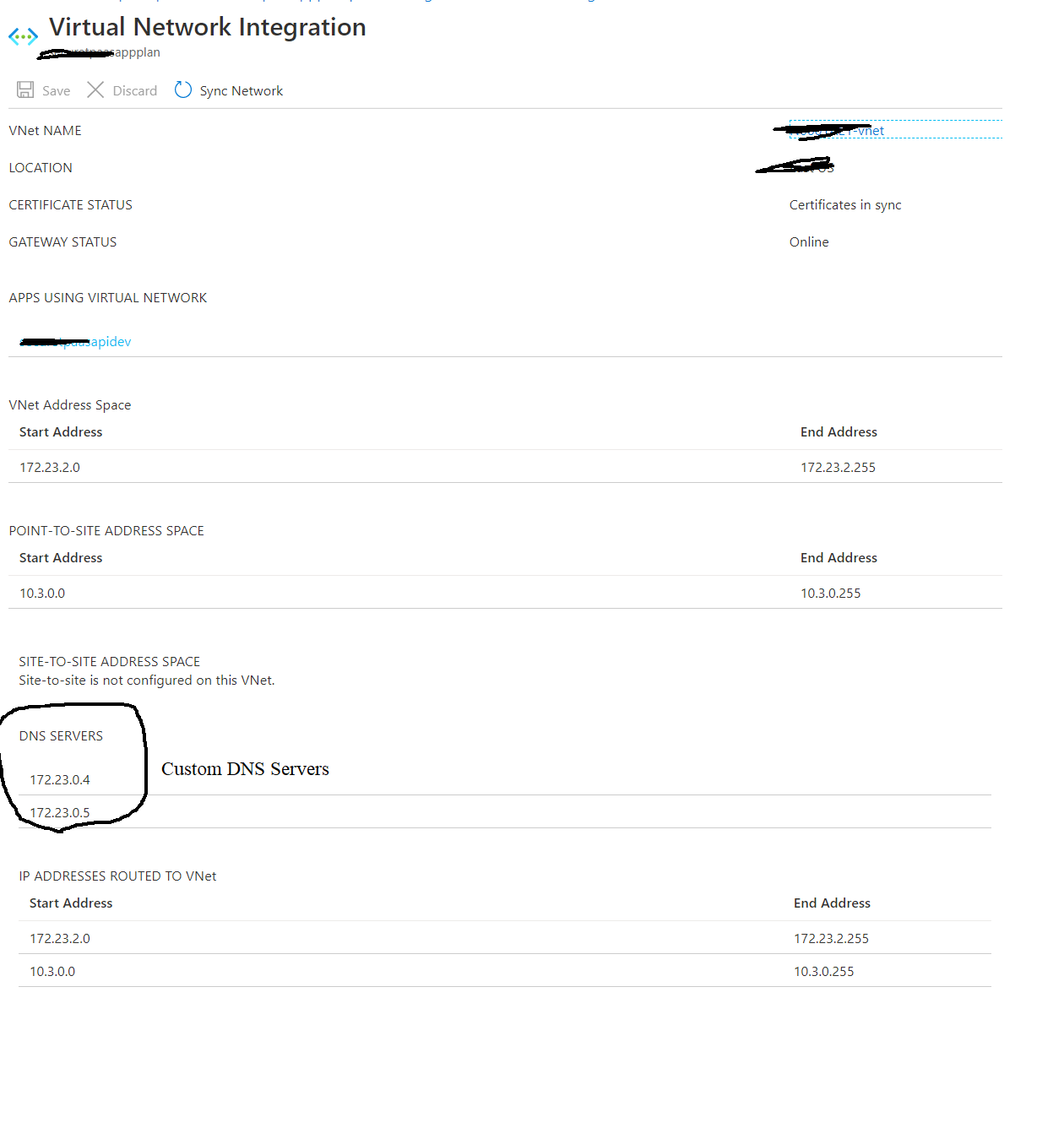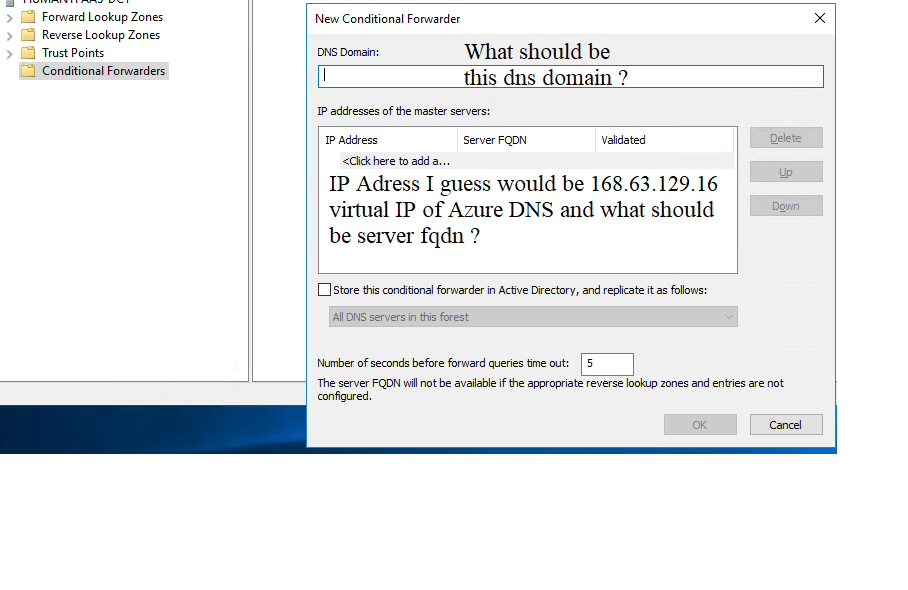Lets take a step back and go over your scenario, and the best way to get DNS resolution.
First off, you are only using 1 Virtual Network. Your Web App is connecting via Azure App Service VNet Integration, which is a P2S VPN join into your Virtual Network. For all DNS resolution scenarios for your Web App, it will act the same as a P2S VPN.
Next, typically VMs get a FQDN from a Public IP Address. This address is registered via Public DNS, and will resolve to your Public IP Address, not your internal IP Address. If you are using this address and want to resolve it to your VNET level IP address, you will need to override the record in your custom DNS, or use a different DNS name for your VMs.
As you discussed earlier, and is discussed in this doc, you can use the 'internal.cloudapp.net' name resolution within your virtual Network by forwarding records to Azure's DNS, creating a DNS Private Zone, or adding your own records to your DNS Server. As you already have a custom DNS server set up, the easy way is to just create the records in your DNS server, and then your Web App will resolve it without issue.
If you would like to forward the records to Azure DNS, you will need to create a conditional forwarder to send 'internal.cloudapp.net' DNS suffix to the recursive resolver at '168.63.129.16'. For the screenshot you posted, the DNS Domain will be 'internal.cloudapp.net', and all you should need on the 2nd area is the IP Address. After that, the records should be able to resolve.



